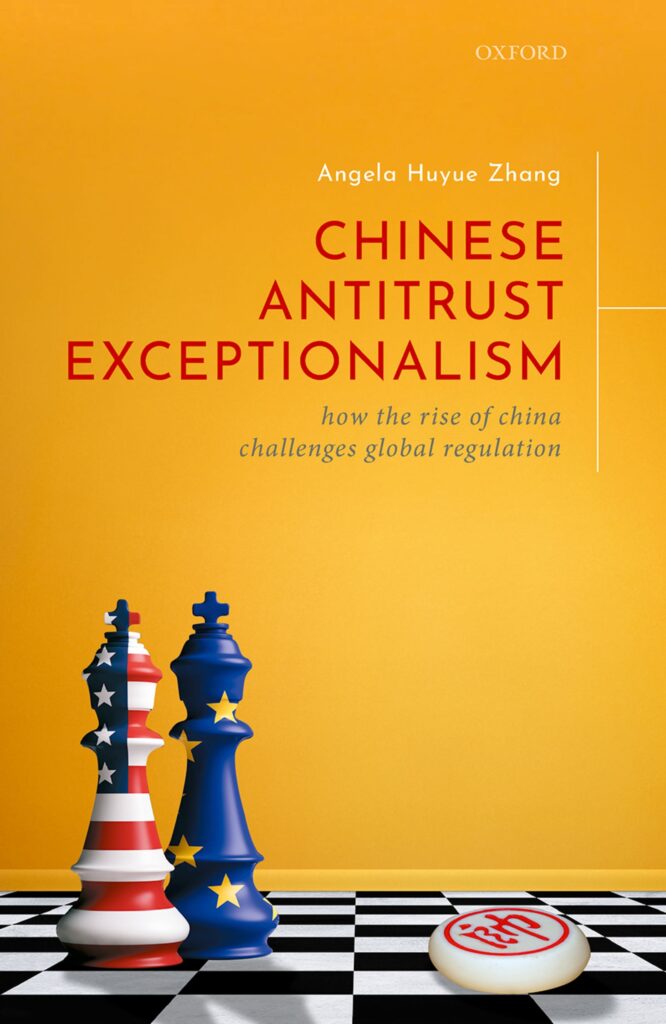A new paper by Angela Huyue Zhang

In recent years, China has emerged as a pioneer in formulating some of the earliest and most comprehensive legislations regulating recommendation algorithms, deepfakes, and generative AI services. This has left the impression that China has stood at the forefront as a global leader in regulating AI. Matt Sheehan, a highly-regarded expert in Chinese AI policy suggests that the U.S. can gain valuable insights from China’s approach to AI governance. Industry observers therefore view Beijing’s regulatory approach as a potential obstacle to Chinese innovation. Such concerns are not unwarranted. In 2020-2022, China undertook a sweeping crackdown on its tech firms. The erratic nature of Chinese tech policy has unnerved investors, precipitating severe and unintended consequences of deterring investment and entry into the consumer tech business.
However, this perception that China has stood at the forefront in regulating AI fails to account for the intricate dynamics of the Chinese political economy. Authoritarian states face a dual-challenge with emerging technologies, as these technologies can empower civil society on one hand, while enhancing government surveillance capabilities and strengthening social stability on the other. Furthermore, technological advancements are crucial for economic growth and national competitiveness. To balance the need for stability and the desire to foster innovation, China has adopted a bifurcated approach to AI regulation: strict information control juxtaposed with industry-friendly regulation. This approach keenly reflects the complex utility function of the Chinese Communist Party, who seeks legitimacy through multiple sources including growth, stability, and nationalism.
Yet striking a balance between regulation and innovation is far from easy. The Chinese government assumes multiple roles in the AI ecosystem as a policymaker, an investor, a supplier, a customer, and a regulator. Given the government’s extensive involvement, it lacks a strong commitment to regulate the industry. Moreover, although AI can pose many social harms, they have not yet evolved into immediate threats to social and political stability. AI safety risks remain speculative, despite warnings from experts. The Chinese government also recognizes the economic benefits AI promises, amidst the intense Sino-US tech rivalry. The tightening of US export restrictions, which hinder Chinese AI firms’ access to advanced chips, have only intensified this competitive pressure, thereby diminishing the government’s incentive for strict regulation.
The Chinese government also faces significant constraints in imposing strict regulation on AI. China’s tech crackdown in 2020-2022 has demonstrated that harsh regulatory measures can generate strong repercussion in the market. Since early 2023, the Chinese economy has entered into a slump. The government’s focus has thus shifted towards revitalizing the economy and boosting market confidence. Consequently, despite appearances of proactive intervention, Chinese regulators have focused on fostering AI growth. The regulatory rules being adopted have sent strong pro-growth signals while attempting to facilitate stakeholder coordination to advance AI development. This close integration of industrial policy and law is a defining feature of Chinese AI regulation.
Understanding the nuances of China’s AI regulatory strategy is crucial not only for predicting the trajectory of its technological development but also for assessing its implications on the global tech rivalry. Major jurisdictions including both the U.S. and the EU are actively exploring the establishment of a comprehensive AI regulatory framework, as exemplified by the AI Act and Biden’s executive order. Leading US AI firms are involved in various litigations and face mounting pressure to negotiate licenses with media for the use of their content as training data. In contrast, China’s relatively more relaxed regulatory environment may offer its AI firms a short-term competitive advantage over their EU and U.S. counterparts.
Meanwhile, China’s approach could give rise to serious regulatory lag. This situation is aggravated by China’s weak market conditions, poor legal institutions, and the tightly coupled political system, potentially leading to latent risks that could escalate into AI-related crises. For example, the Chinese government is invigorating a “whole of society” approach to push forward AI development without necessarily taking effective precautionary measures. Under such a command-and-control strategy, by the time the full impact of AI harms become apparent to top policymakers, it could be too late for effective reversal or mitigation. This dynamic complexity of China’s AI regulation therefore underscores the urgent need for increased international dialogue and collaboration with the country to tackle the safety challenges in AI regulation.
The paper ‘The Promise and Perils of China’s Regulation of Artificial Intelligence’ is available on SSRN. Angela Huyue Zhang, an Associate Professor of Law at The University of Hong Kong and Director of the Phillip K. H. Wong Center for Chinese Law, is widely recognized as a leading authority on Chinese tech regulation. She is the author of Chinese Antitrust Exceptionalism: How the Rise of China Challenges Global Regulation (Oxford, 2021), named one of the Best Political Economy Books of 2021 by ProMarket, and High Wire: How China Regulates Big Tech and Governs Its Economy (Oxford, 2024). In fall 2024, Zhang will join the University of Southern California as a Professor of Law. Follow her on Twitter @AngelaZhangHK.


